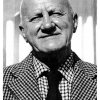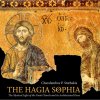http://journals.hil.unb.ca/index.php/IFR/article/view/7697/8754
Radmila J. Gorup and Nadeda Obradovic, eds.
The Prince of Fire: An Anthology of Contemporary Serbian Short Stories
Pittsburgh: University of Pittsburgh Press, 1998. Pp. 375 $19.95
Reviewed by Mirna Emersic
"Ah, the Serbs! Until recently no one knew very much about them...and now almost everybody has opinions," which, according to Charles Simic - the writer of the foreword - are "not only superficial but often plain wrong" (ix). That is why one of the editors of this book expresses her hopes that this anthology of contemporary Serbian short stories "may help restore a more realistic and differentiated view about the region and about its present tragic conflict among the reading public" (xv). And we certainly do develop an impression of the region, but we learn nothing about the recent conflicts, which happen to be some of the most talked about events of the last decade. The reader would undoubtedly like to see how Serbs are dealing with the current situation as a result of recent wars in the Balkans in which they have been implicated. Only one story - "The Gift" - makes an exception here by looking at the present situation in Serbia, albeit without providing an in-depth analysis or picture of Serbian culture.
Nevertheless, The Prince of Fire: An Anthology of Contemporary Serbian Short Stories is a fine collection of thirty-five tales - including a foreword and an introduction - that cover a wide variety of topics ranging from a story about an artist in the Middle Ages to the experience of life under communism. As we are informed in the introduction, "the genre of the short story has a long and important tradition in Serbian literature" (xiii). The introduction also provides very good insights into the history of modern Serbian letters. Indeed, the collection is generally representative of the Serbian short story in the twentieth century and, at least, gives the impression of being up to date. The introduction mentions that the majority of the authors chosen for this anthology belong to the generation born between 1930 and 1960. No attempt is made to explain why such an established and - in some instances - old group of authors was selected, or rather, why younger, fresher, and more aspiring writers were not included in this anthology. In addition, only four of the thirty-five authors are women. Most authors have reached canonical status (e.g., Milorad Pavic, Danilo Kiš, and Borislav Pekic) or are well on their way to fame (Grozdana Olujic and David Albarhari). The collection also encompasses writers from outside Serbia, including Bosnia and Croatia.
The book takes its title from a story by Filip David, arguably one of the most prominent Serbian authors. A picture of fire is also to be found on the front cover, presumably graphically symbolizing the events that have colored Serb history. Each story is introduced with a short precis of the author's life and works, sometimes even with a brief presentation of the topics that figure prominently in the author's fiction. Unfortunately, the exact time each story was written and the original date of publication are not given. In certain cases, this would have facilitated a better understanding of the material, as is the case in Pavic's The Wedgewood Tea Set, where it cannot be determined from the content of the story when the piece was written, but where both meaning and interpretation depend on knowing when the story originated. The story's underlying message concerns the emotional and economic relationship between the Balkans and Europe, a relationship that, as we all know, has taken on various forms from one time to another. Apparently, the stories seem to be arranged in a descending order according to the respective author's age, from the eldest to the youngest.
Among the prevalent themes are those of bygone childhood memories, experiences of the Second World War, and the reality of communism. A truly intriguing story is Aleksandar Tišma's The Whole Self, a tale of the narrator's aunt and uncle, who live their lives sharing the delusion that the uncle is a successful man until it is no longer possible to do so. Milica Micic Dimovska's Smiles, one of the finest stories in this anthology, is a realistic portrayal of a woman's view of her life following the death of her husband, a communist, in the Second World War. The story is unique in that it finally provides a woman's perspective of the war and of communist Serbia. Equally captivating is Svetislav Basara's A letter from Hell, a story comparing communist society with the netherworld in an ingenious and humourous way. Here, hell is seen as "an empty city with gray buildings decorated with countless posters and banners proclaiming: ONWARD TO NEW WORKERS' VICTORIES!" (331).
Personally, I found the story A Woman from a Catalogue by Dragan Velikic most intriguing. Here, an "accurate and orderly" (301) man's vision about building a perfect relationship in a scientific way is achieved. Janko Belog, professor of chemistry, who at the beginning of each school year would compose a perfect class schedule, which was "his modest contribution to the idea of universal order" (303-4), dreams for years about "the catalogue in which he could record important events, memories, and dreams, everything that leaves a trace in life" (301). When introduced to someone new, one would only need exchange dossiers, which, among other things, would make possible "easy togetherness and a higher degree of communication" (301). This idea appears to him in a dream- which to Janko is only a "catalyst, an optimal condition that facilitates the appearance of the essence of future events" (301) - and is based on Mendeleyev's periodic system of elements. The story is almost breathtaking because we cannot wait to see what happens next.
The Prince of Fire is a significant book because it makes a valuable and welcome contribution to the South-East Slavic European Study in English. Since it depicts a very realistic picture of Serbia and, to some extent, of other areas of former and present Yugoslavia, this book would be very helpful to anyone interested in European Cultural Studies. The book makes for a good and pleasurable read, even for those who are not already acquainted with this region of the world. While it lacks stories that are critical of the Serbian culture and history, this anthology does make an effort to portray a good blend of all sections of society.




